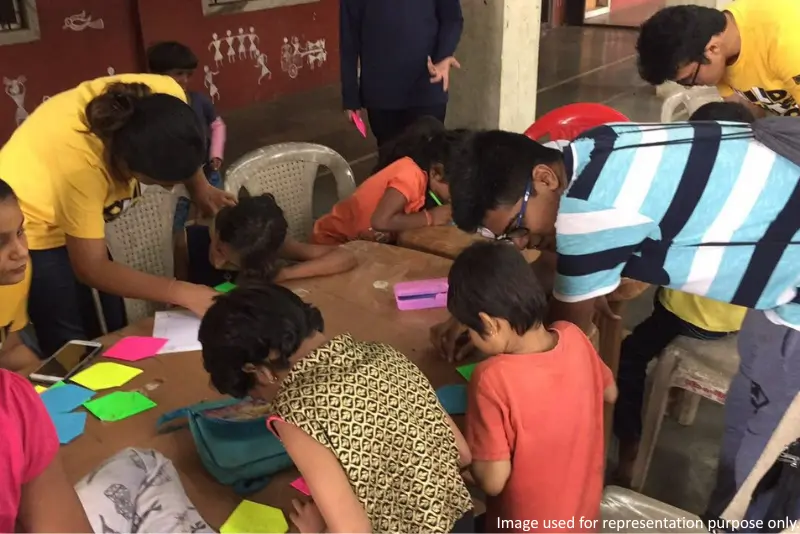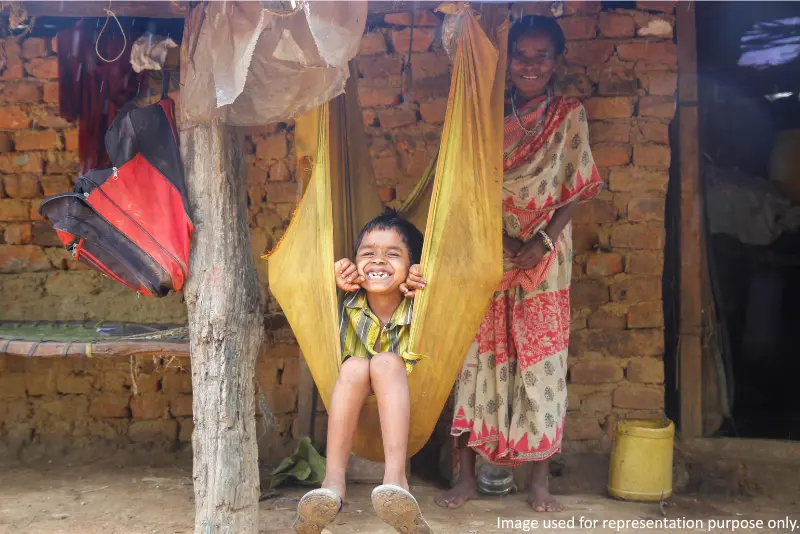
Mental health awareness in children: Why it matters
As adults, we often overlook our mental health, and children are no exception. While adults have the tools to navigate emotions, children are sti....
Read More
Have you ever wondered what it’s like to be a child who can’t express their feelings? According to World Health Organization (WHO), 1 in 4 children faces a mental health disorder worldwide. While childhood is seen as carefree, many young minds silently battle emotional struggles that often go unnoticed, misunderstood, or ignored.
Understanding mental health challenges in children
Children, just like adults, can experience a range of mental health issues that deeply affect their ability to grow, learn, and connect. Some of the most common signs of children’s mental health challenges are:
Why early intervention matters
Early detection and support can change a child’s life. Providing coping education and a safe space to express feelings is crucial, both at home and school.
Early intervention in schools
Implementing emotional literacy programs
Planning programs that help children recognise, understand, and manage their emotions from an early age is crucial. This can be done through daily emotion check-ins, storytelling sessions, or encouraging painting, music, or even journals.
Training teachers to identify early warning signs
When teachers are trained, it equips them to spot behavioural or emotional changes before they escalate. Schools can conduct mental health workshops, observation protocols, and inclusivity sessions including bullying.
Bonding with children through sports and activity workshops

Bonding through extracurricular activities fosters trust, expression, and teamwork beyond the classroom. It can be achieved through structured playtime, art-based learning, life-skill sessions, or group sports.
Creating inclusive classrooms that respect neurodiversity
To ensure every child feels seen, valued, and supported regardless of their unique needs, inclusivity can be encouraged through flexible seating, personalised or engaging learning aids, and sensitisation sessions for students.
Early intervention at home
Encouraging their firsts in every step
Celebrating small wins boosts a child’s confidence and emotional resilience. Simple praise or acknowledging their efforts helps build self-esteem and a sense of worth.
Correcting their behaviour, not them
Guiding actions without hurting a child’s self-worth fosters growth. For example, say “That was rude to say” instead of “You’re rude” to encourage understanding without labeling.
Maintaining open communication without judgment
Creating a safe space helps children express their feelings freely. Bedtime talks, open-ended questions, or drawing activities can make them feel secure and better understand their emotions.
Validating children’s emotions instead of dismissing them
Children deserve to make mistakes and feel heard. It validates their emotions which helps them feel safe and understood. This can be done through active listening, empathy, and saying, “It’s okay to feel this way.”
Bonding with children through playful activities

Play strengthens emotional bonds while giving children a healthy outlet for stress and creativity. Activities like board games, pretend play, crafts, or dancing help them open up naturally.
CRY UK's role in providing mental health support for children
CRY UK supports underserved children whose childhoods are disrupted by poverty, early labour, abuse, trafficking, and illness. They empower these children with education, healthcare, and protection, while also helping them recover emotionally and rebuild what was lost, enabling them to thrive.
Conducting Life Skills Sessions: Organising interactive sessions that help children reflect on their goals, beliefs, and aspirations, boosting self-confidence and self-awareness.
Bonding through sports coaching: Encouraging discipline, patience, and teamwork, the key traits that support emotional balance and better decision-making.
Child Activity Centres: Conducting workshops on child rights and social issues like period shame, child marriage, and child labour, promoting open conversations.
Interactive creative workshops: Engaging children in fun activities like painting, visiting card making, or creating teaching-learning materials helps them reflect on their aspirations. Such creative expressions allow ideas to take shape, nurturing their mental well-being.
While significant strides have been made in addressing children's mental health, the journey is far from over. Charities like CRY UK along with your unwavering commitment can help continue to bridge the gaps. Let’s ensure that every child has the support they need to thrive emotionally and achieve their full potential.